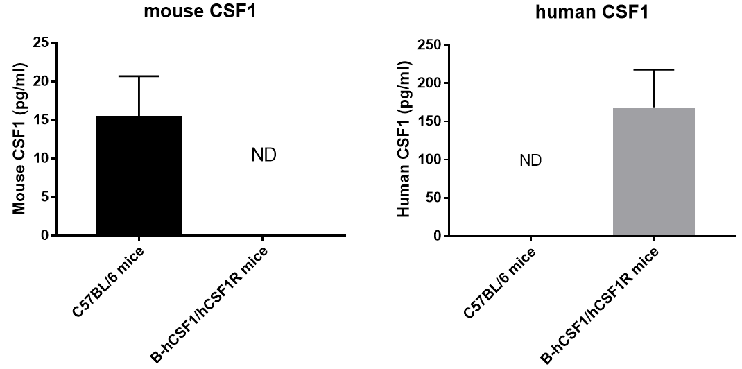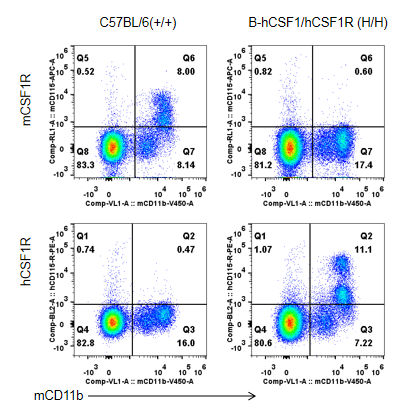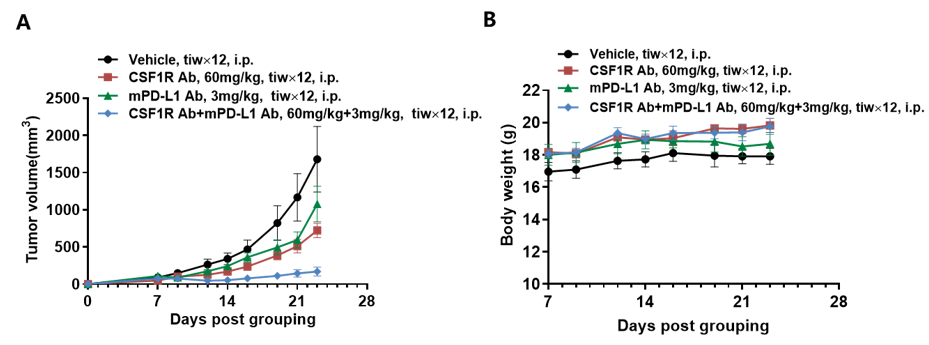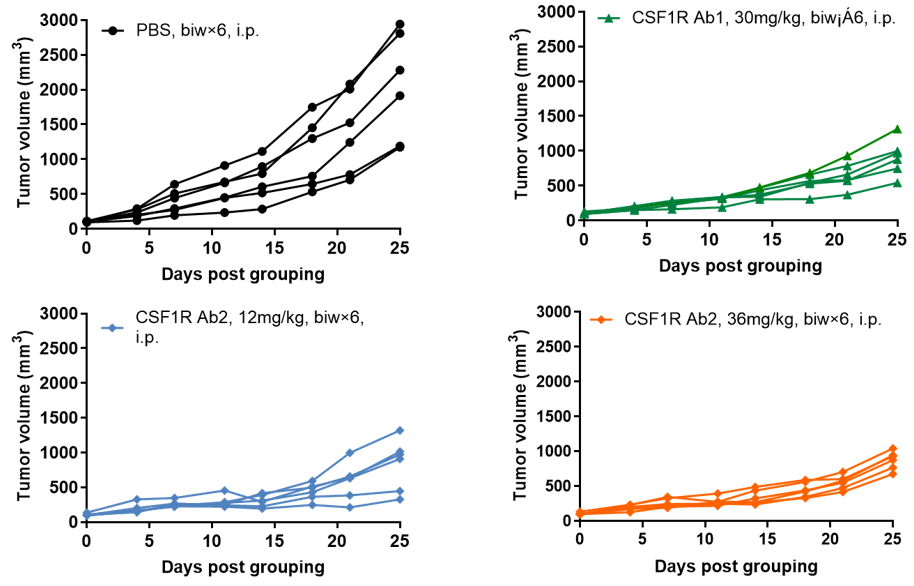| Strain Name |
C57BL/6-Csf1tm1(CSF1)Begen Csf1rtm1(CSF1R)Begen/Bcgen
|
Common Name | B-hCSF1/hCSF1R mice |
| Background | C57BL/6 | Catalog number | 121109 |
|
Related Genes |
MCSF; CSF-1 BANDDOS, C-FMS, CD115, CSF-1R, CSFR, FIM2, FMS, HDLS, M-CSF-R |
||
|
NCBI Gene ID |
12977,12978 | ||
Protein expression analysis

Strain specific CSF1 expression analysis in homozygous B-hCSF1/hCSF1R mice by ELISA.Splenocytes were collected from wild-type C57BL/6 mice (+/+) and homozygous B-hCSF1/hCSF1R mice (H/H) stimulated with LPS in vivo, and analyzed by ELISA with species-specific anti-CSF1 ELISA kit. Mouse CSF1 was detectable in wild-type mice. Human CSF1 was exclusively detectable in homozygous B-hCSF1/hCSF1R but not in wild-type mice.

Strain specific CSF1R expression analysis in homozygous B-hCSF1/hCSF1R mice by flow cytometry.Blood were collected from wild-type C57BL/6 mice (+/+) and homozygous B-hCSF1/hCSF1R mice (H/H), and analyzed by flow cytometry with species-specific anti-CSF1R antibody. Mouse CSF1R was detectable in wild-type mice. Human CSF1R was exclusively detectable in homozygous B-hCSF1/hCSF1R but not in wild-type mice.
Combination therapy of anti-mouse PD-L1 antibody and anti-human CSF1R antibody

In vivo efficacy of anti-human CSF1R antibodies

Antitumor activity of anti-human CSF1R antibodies in B-hCSF1/hCSF1R mice. (A) Anti-human CSF1R antibodies inhibited MC38 tumor growth in B-hCSF1/hCSF1R mice. Murine colon cancer MC38 cells were subcutaneously implanted into homozygous B-hCSF1/hCSF1R mice (female, 6-7-week-old, n=6). Mice were grouped when tumor volume reached approximately 100 mm3, at which time they were treated with two anti-human CSF1R antibodies with doses and schedules indicated in panel. (B) Body weight changes during treatment. (C) Mouse survival after grouping. As shown in panel A and C, anti-human CSF1R antibodies were efficacious in controlling tumor growth in B-hCSF1/hCSF1R mice, demonstrating that the B-hCSF1/hCSF1R mice provide a powerful preclinical model for in vivo evaluation of anti-human CSF1R antibodies. Values are expressed as mean ± SEM.










